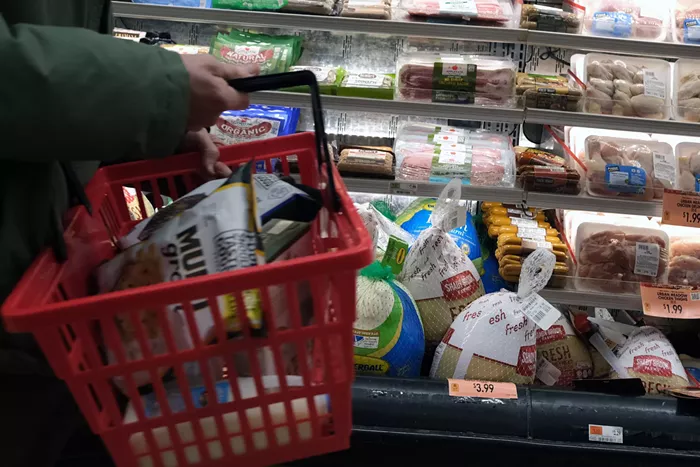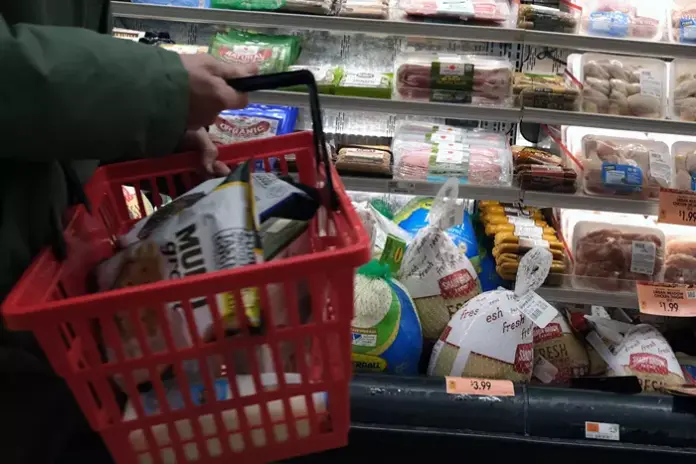This post was originally published on this site

When Kroger shuttered its Lake City Fred Meyer this month, the neighborhood became a food desert without a full-service grocery store. Five other Kroger-owned stores have recently closed in Redmond, Everett, Kent, Tacoma and Mill Creek. Paired with the steady death of Seattle stores over the last few years, the closures sparked worry among government officials, unions and community members alike, that these food deserts could spread.
On Tuesday, the Seattle City Council unanimously approved an ordinance that declares a public health emergency, temporarily banning grocery and pharmacy chains from enforcing anti-competition covenants that could keep people from accessing fresh food. These “negative use restrictions” allow companies to block their rivals from moving onto their former lots. The ordinance will expire in one year, unless council extends it or terminates it early.
This legislation, proposed by Mayor Bruce Harrell on October 1, came after challenger Katie Wilson’s campaign pitch in partnership with UFCW 3000 to explore publicly funded grocery stores—government-run stores that provide greater food accessibility. Harrell’s legislation moved through at breakneck speed, less than one week before Election Day. Wilson is leading the race by four points, according to polling conducted by The Stranger and DHM Research.
Harrell’s legislation might sound impressive, appealing to progressives’ desires to stick it to big corporations. But it’s not as radical as it could be. In fact, the newly established law isn’t retroactive to existing restrictive covenants, meaning it will only ban any prospective agreements. Breaking this law may come with a steep $1,500 a day fine, but it won’t have much immediate effect.
Kroger, which owns Fred Meyer and QFC, said it closed stores due to increased retail theft—despite police data showing that it’s in decline—or underperformance.
Anti-competition covenants allow a chain—Kroger, in this instance—to keep some of their customers after they close a location by forcing them to travel to the next closest store within their brand.
“What bothers us, I think, as a city, is to weigh anti-competition versus people’s need for food and a pharmacy,” said District 5 Councilmember Debora Juarez, who represents Lake City. “We believe that is unacceptable and unconscionable.”
Juarez said that in addition to losing Fred Meyer and its pharmacy, the neighborhood’s Walgreens and Bartell Drugs have closed.The last pharmacy in Lake City is run by the Seattle Indian Health Board at their clinic on 33rd Avenue. The next closest is Safeway in Pinehurst, 1.3 miles away from the former Fred Meyer. That’s only a five minute drive, but it’s about 15 minutes by transit or a 27-minute walk.
“I’m sure across the city there are other grocery stores that have these restrictive noncompetitive covenants,” Juarez said. “Hopefully, council colleagues, we can start looking at these covenants…because we can’t find ourselves in this city, where we have food deserts in a city that has so much abundance of wealth and food.”
When grocery stores close, the community suffers. People might have trouble finding another store close by, or finding reliable transit to get there. Food pantries that partner with grocery stores lose food that would otherwise be thrown away. In Lake City, North Helpline, a homelessness prevention and food access nonprofit, stocked its shelves with food from Fred Meyer.
Councilmembers mentioned the looming threat of SNAP running out this Saturday, courtesy of the ongoing government shutdown. But this legislation won’t directly address that, especially with the benefits cut-off literally days away.
“All of this, it’s all part of this food desert and the need to provide food for our constituents,” said Councilmember Maritza Rivera. “Food insecurity is real, and it’s hitting a lot of folks in the various districts that we represent.”
After the meeting, Mayor Bruce Harrell issued a statement, applauding council for their action and reminding the public that he proposed this legislation to council.
“Every neighborhood deserves convenient access to fresh, affordable, nutritious food and essential medicine. Period,” he said.





















